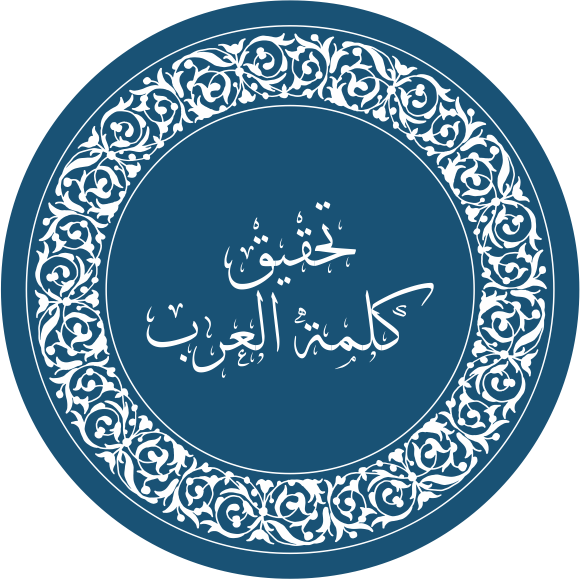- Home
- About Us
- Contribute
- Privacy Policy
- Terms of Use
- Contact Us

Linguistic Analysis of the Word Arab and Arabia
(Dr. Imran Khan & Mufti. Shah Rafi Uddin Hamdani)
The word ‘Arab’ was originally 'Arabah' 1 which refers to deserts, waterless and barren land, and the Arabian Peninsula and its inhabitants have been called as such. 2 For some, the word is originally derived from a Semitic origin meaning ‘west’, while others connect it with the concept of nomadism. 3 In Semitic languages, the word ‘Araba (عربۃ) refers to desert, Bedouins or nomads, which were later called Arabs. 4 In the
Biblical text states that the word Arab was also used for this region of Arabia at the time of Prophet Solomon  in 1000 B.C., 6 while the oldest, still preserved, presence of the word ‘Arab’, other than the biblical text, is found in an Assyrian inscription of King Shalmaneser III in 853 B.C., which refers to nomadic people inhabiting the remote north of Arabia, probably in the Syro-Arabian desert. 7 The Old Testament describes Arab as an arid mountainous region, stretching from the coast of Red Sea to Euphrates which includes Hijaz, Syria, Lebanon, Jordan and Palestine. 8
in 1000 B.C., 6 while the oldest, still preserved, presence of the word ‘Arab’, other than the biblical text, is found in an Assyrian inscription of King Shalmaneser III in 853 B.C., which refers to nomadic people inhabiting the remote north of Arabia, probably in the Syro-Arabian desert. 7 The Old Testament describes Arab as an arid mountainous region, stretching from the coast of Red Sea to Euphrates which includes Hijaz, Syria, Lebanon, Jordan and Palestine. 8
Herodotus and after him, several other Greek and Latin writers used the term ‘Arabia’ and ‘Arab’ to refer to the entire Arabian Peninsula and all its inhabitants. They also included Southern Arabia, and even the Eastern desert of Egypt, which is located between the Nile and the Red Sea under the term of Arabia. Thus, the term appears to include all the desert areas of the near and Middle East, inhabited by Semitic-speaking nation. 9 Today, the word Arab is defined as the inhabitants of a large region, who speak, write, publish, and address on radio and television in Arabic language, which is the language of the Arabs and the language of the Noble Quran. 10
- 1 Abu Abdullah Yaqut ibn Abdullah (1995), Ma’ujam Al-Buldan, Dar Sadir, Beirut, Lebanon, Vol. 4, Pg. 96.
- 2 Safi Al-Rahman Al-Mubarakpuri (2010), Al-Raheeq Al-Makhtum, Dar ibn Hazam, Beirut, Lebanon, Pg. 21.
- 3 Bernard Lewis (1954), The Arabs in History, Hutchinson’s University Library, London, U.K., Pg. 10.
- 4 Syed Sulaiman Nadvi (1975), Tareekh Ardh Al-Quran, Darul Ishaat, Karachi, Pakistan, Pg. 52.
- 5 Holy Quran, Al-Hujurat (The Inner Apartments) 49: 14
- 6 The Bible, Kings 10: 15
- 7 Bernard Lewis (1954), The Arabs in History, Hutchinson’s University Library, London, U.K., Pg. 11.
- 8 The Bible, Deuteronomy 1: 7
- 9 Bernard Lewis (1954), The Arabs in History, Hutchinson’s University Library, London, U.K., Pg. 11-12.
- 10 Jawwad Ali (2001), Al-Mufassal Fe-Tareekh Al-Arab Qabl Al-Islam, Dar Al-Saqi, Beirut, Lebanon, Vol. 1, Pg. 13.